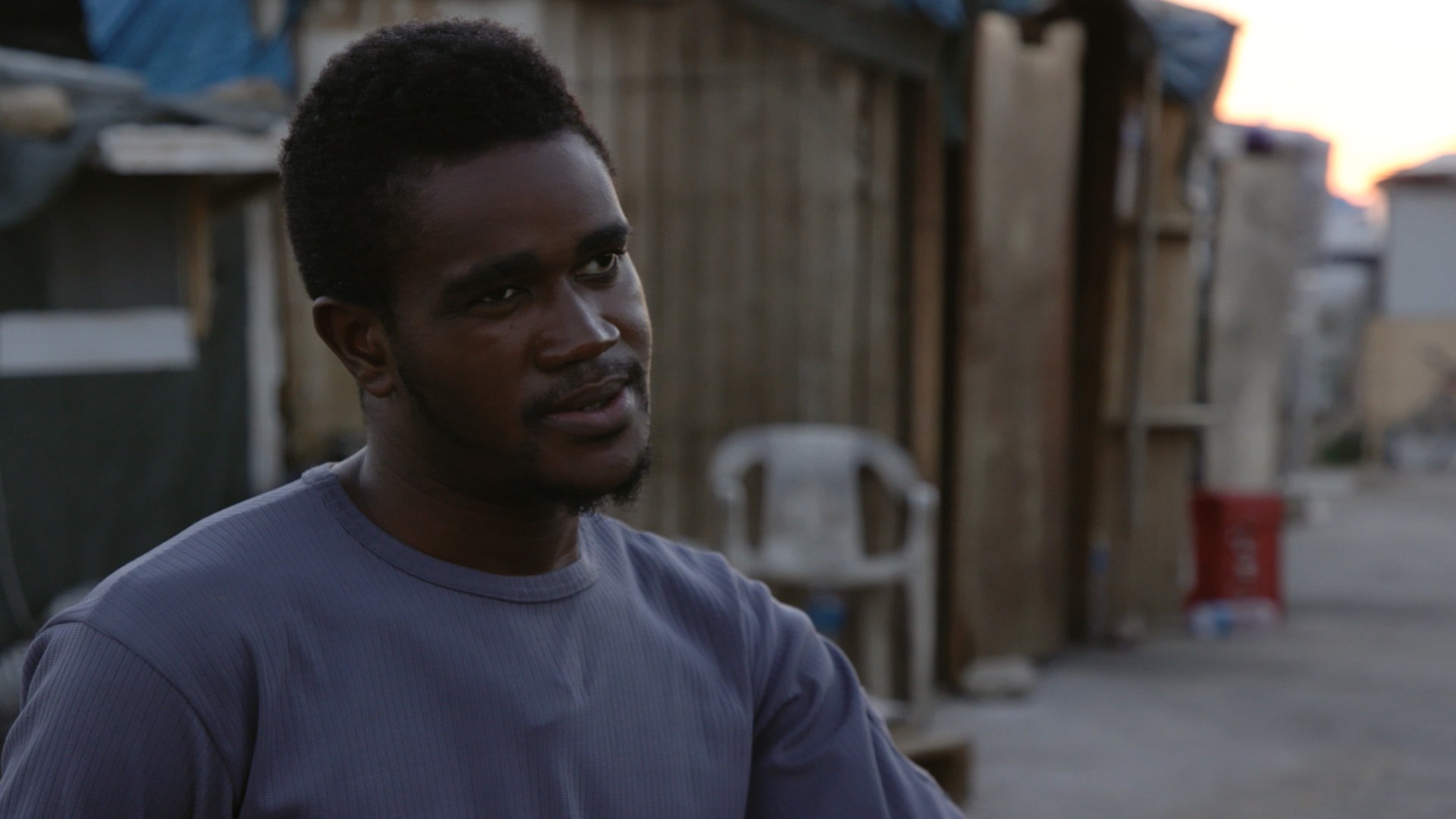Twin brothers Aimamo and Ibrahim, 16, migrated from Gambia to Libya unaccompanied. Their trip was to be paid for in exchange for labor upon arrival, and when they got there they spent two months on a farm — and endured beatings and threats. At night, they were locked up. "If you try to run, they shoot you. If you stop working, they beat," Aimamo explained in a new report called Harrowing Journeys, published by UNICEF and the UN's child migration agency (IOM).
Advertisement
Based on the testimonies of some 22,000 migrants and refugees, including some 11,000 children and youth, the report, which takes an unprecedented look at the journey of young people into and across Europe, shows that three in four young people (14-25) traveling along the Central Mediterranean route experience abuse, exploitation, and practices which at times amount to human trafficking."Children and young people shouldn't be compelled to risk their lives just to move, just for the opportunity to have a shot at a better life, especially when they are already fleeing from war or endemic poverty. They should have the opportunity to move safely, instead of turning to smugglers and traffickers to get to where they need to go," UNICEF's Christopher Tidey told VICE Impact.
While, the dangers faced by those crossing the Mediterranean in unsafe and overcrowded dinghies have been well documented, the level of abuse and threat faced by young migrants and refugees along their journey, from the packed pickup trucks used to cross the Sahara, to the rides underneath lorries or atop freight trains, will come as a shock to many.But with regular migration channels — enabled by humanitarian, student or work visas, programs for family reunification, or refugee resettlement – limited, and closed to most, many have little choice but to take these underground, harsh routes. Tidey, who has spent time interviewing young migrants and refugees in Europe, explained that those who set off on these journeys are also often not aware of the level of risk they are taking when setting off."You cannot do anything; we were like slaves."
Advertisement
Check out more videos from VICE:

So what are the risks faced by young migrants and refugees? Many, like Aimamo, Ibrahim, and Sanna, will, after agreeing to pay for their journeys in exchange for labor, end up in slavery-like conditions. In fact, 86 percent of detected male trafficking victims are victims of forced labor. "We were like slaves," 17-year-old Sanna, a fellow migrant from the Gambia also explains in the report. "The Libyans sometimes refused to pay us," he said, "and if we discussed it with them, they would bring a gun. You cannot do anything; we were like slaves."Others in Libya are held in captivity upon arrival for ransom. "We know some of the traffickers are armed groups operating in Libya because there is a security vacuum there so some of these groups are able to flourish. There are detention facilities in Libya that are run by armed groups, where they are locking up refugees and migrants," Tidey explained.Girls are more vulnerable to a different type of threat — sexual exploitation, 72 percent of detected female trafficking victims, and child marriage. The report also found that for those traveling alone, or without education, the risks of abuse were even higher.But in addition to these worrying trends, the report points to another alarming one: xenophobia and racism."People here do not like black people at all," Christelle, 15, a refugee from the Democratic Republic of the Congo who came to Libya with her family, told UNICEF after having been stopped and extorted by police, "On the contrary, black people are mistreated."
Advertisement
"Some people will run away from you," Filly, 17, who migrated alone from the Gambia to Palermo, Italy – where racism now shadows him daily, explained, "like they are seeing an animal."Countless accounts from interviewees from sub-Saharan Africa make clear that they are treated more harshly, targeted for exploitation, or victims of hate speech, because of the color of their skin, or ancestry: 65 percent compared to 15 percent along the Eastern Mediterranean route (through Greece and Eastern Europe), and 83 per cent compared to 56 per cent along the Central Mediterranean route (through Libya and Italy)."Although this report looks at the Mediterranean routes, there are very vulnerable young refugees and migrants all over the world, like in Latin America and South Asia. It's a global problem," Tidey told VICE Impact. In fact, earlier in May, UNICEF reported a five-fold increase in the number of unaccompanied and separated migrant and refugee children worldwide, topping 300,000 in 2015 and 2016.
In response to the findings, UNICEF is calling for urgent action on all concerned parties − countries of origin, transit and destination, the African Union, the European Union, international and national organizations with support from the donor community."People can also get involved by pushing their elected representatives for actions with respect to ensuring protection and pathways for refugees and migrants."
Advertisement
So what can be done?A lot. UNICEF has put forward a six-point plan to keep refugee and migrant children safe. This plan highlights the necessity of ending the detention of refugee and migrant children, keeping families together and giving children legal status, pressing for action on the causes that uproot children from their homes, supporting organization protecting uprooted children from violence and working to establish safe routes.But not only. "People can also get involved by pushing their elected representatives for actions with respect to ensuring protection and pathways for refugees and migrants," Tidey added.And ultimately, fighting back against xenophobia and racism targeted towards refugees and migrants in our own communities is not only important but looking at these figures, more urgent than ever.Learn more about the important work of UNICEF and how you can get involved.